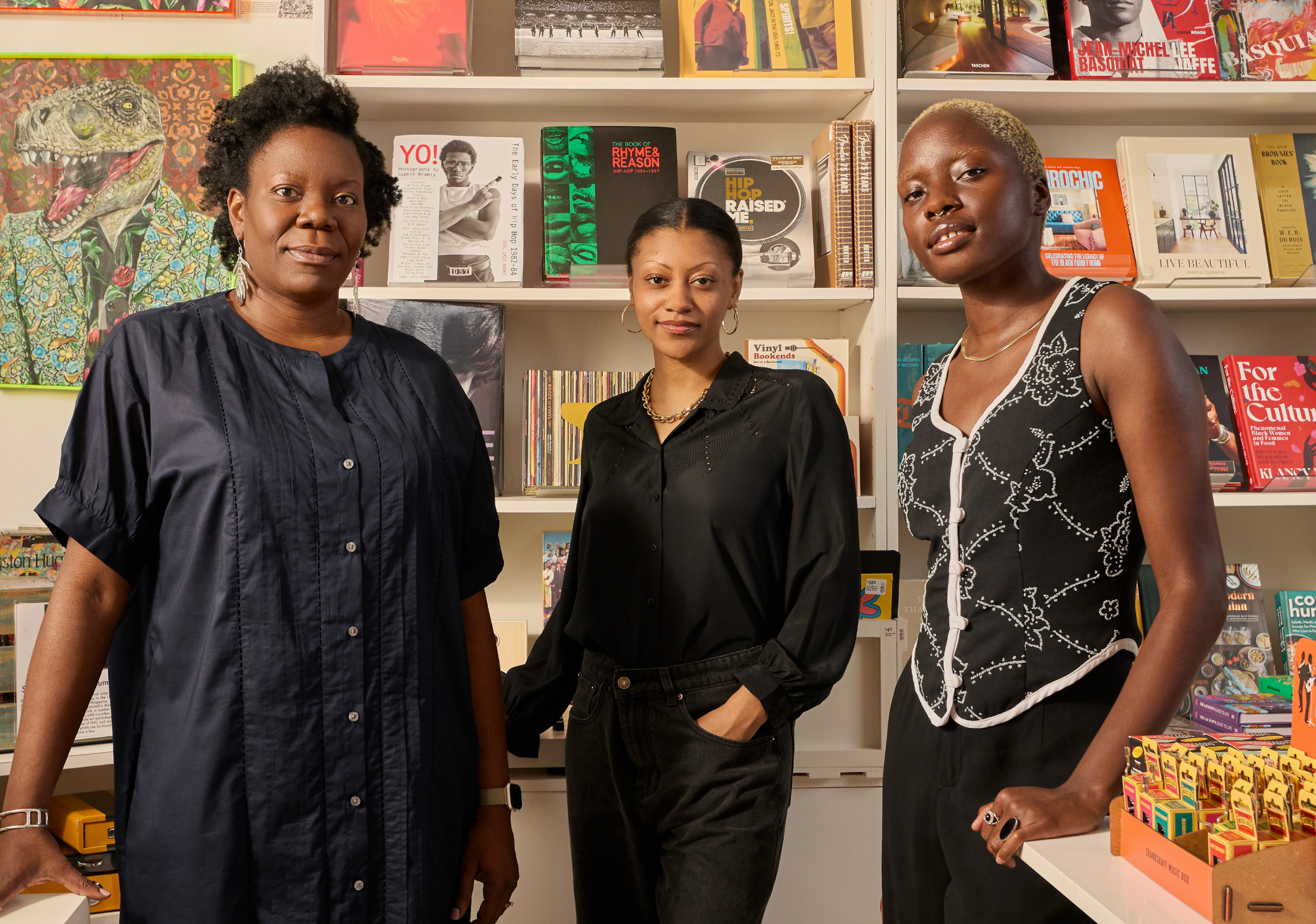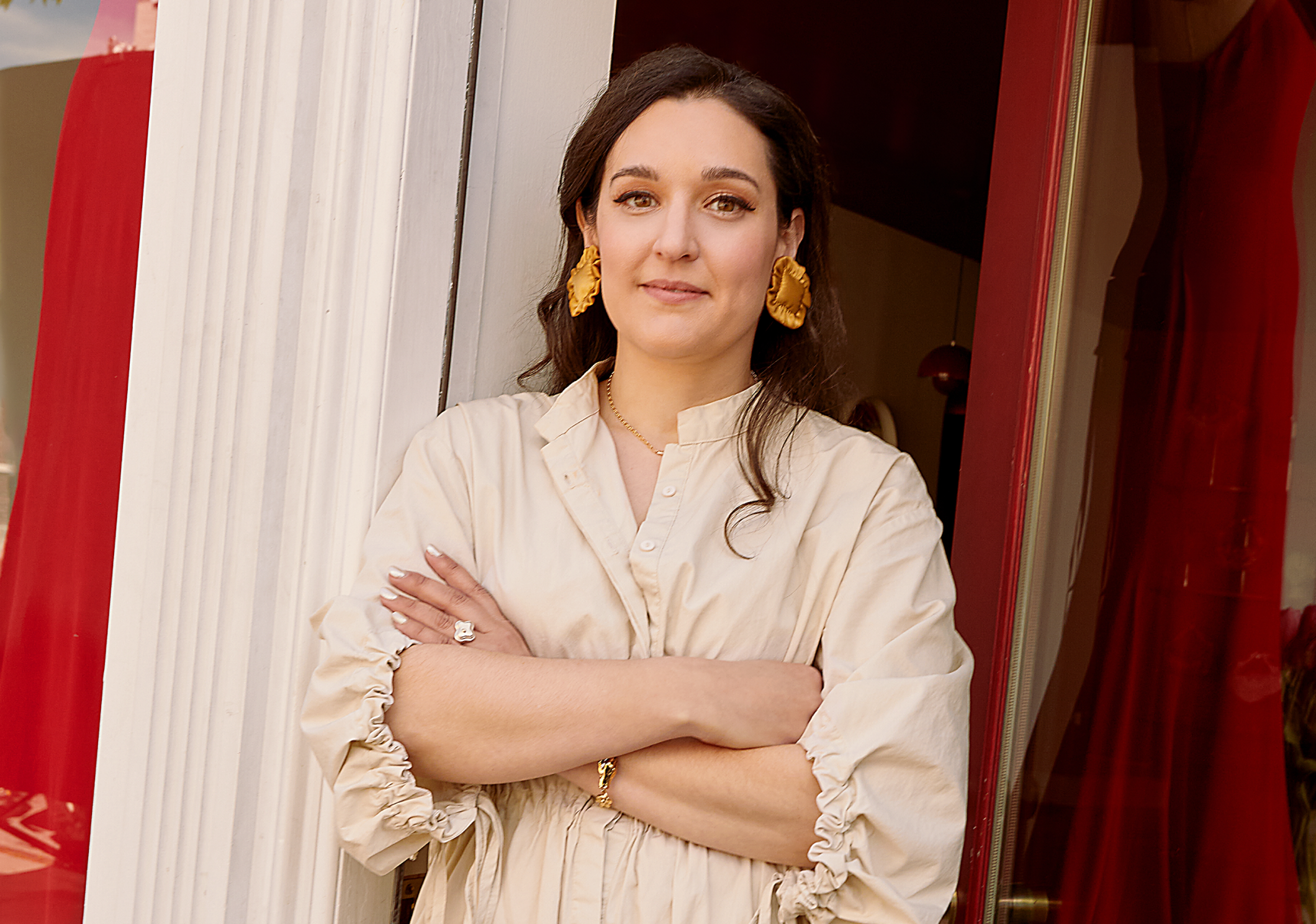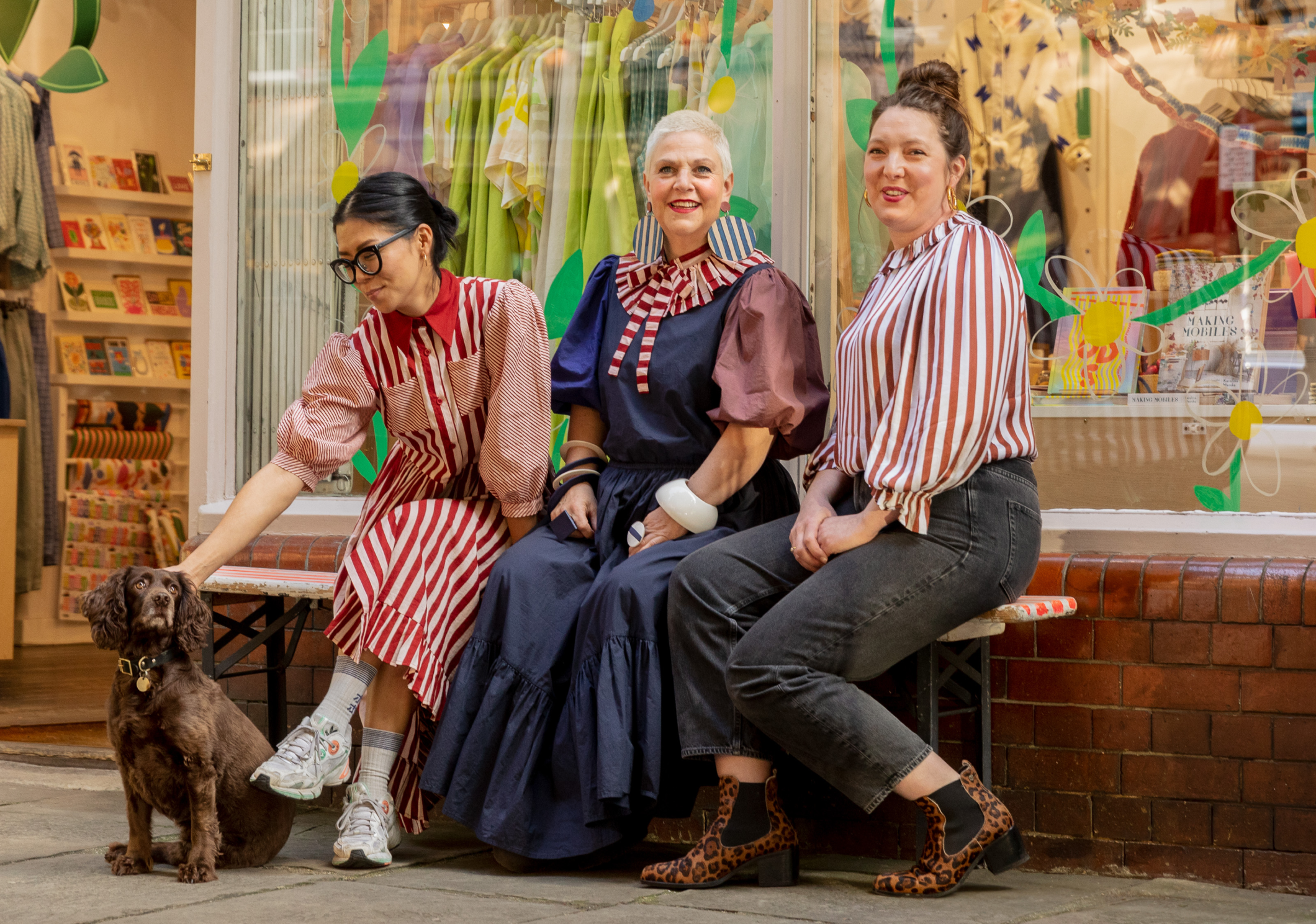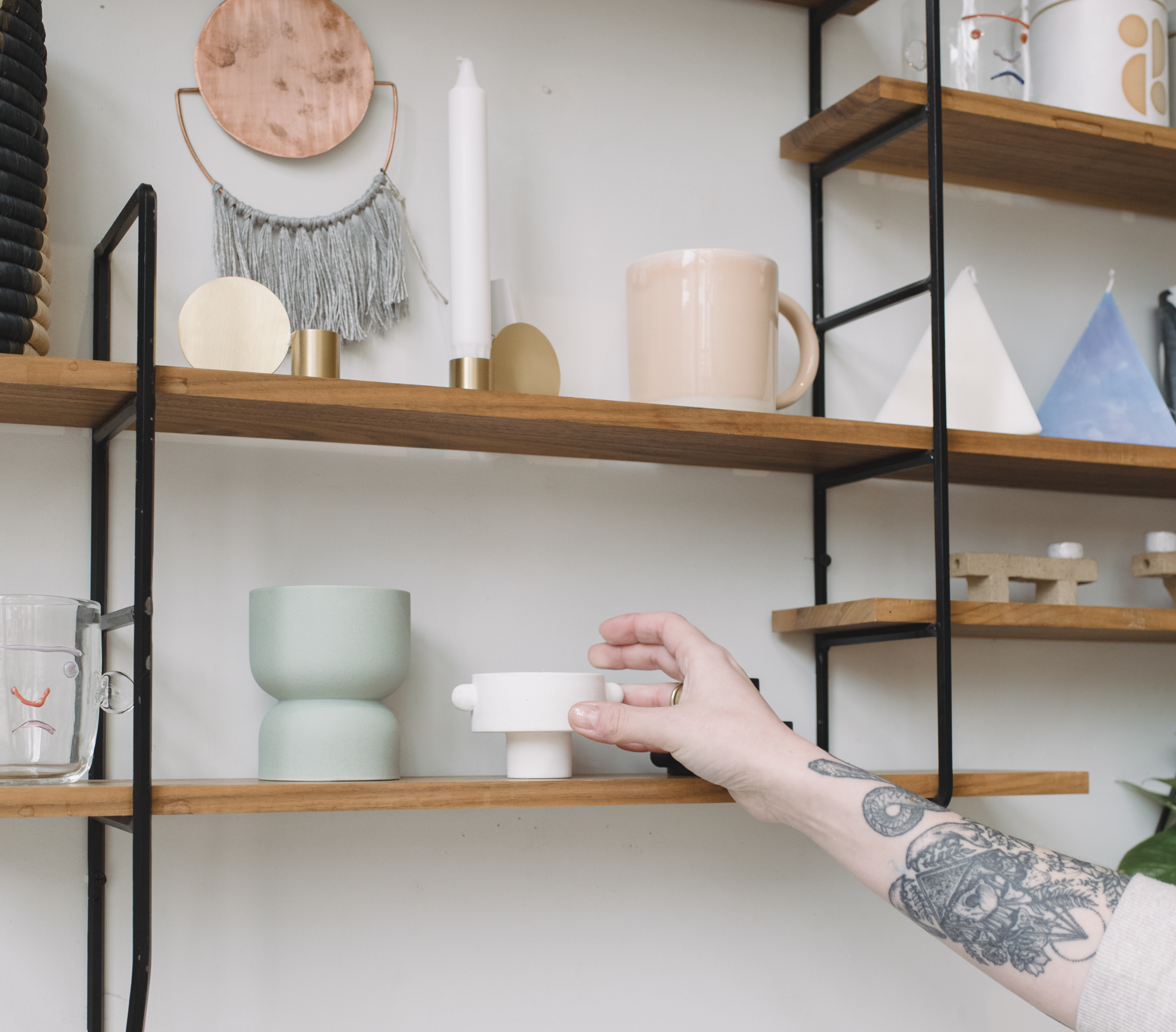
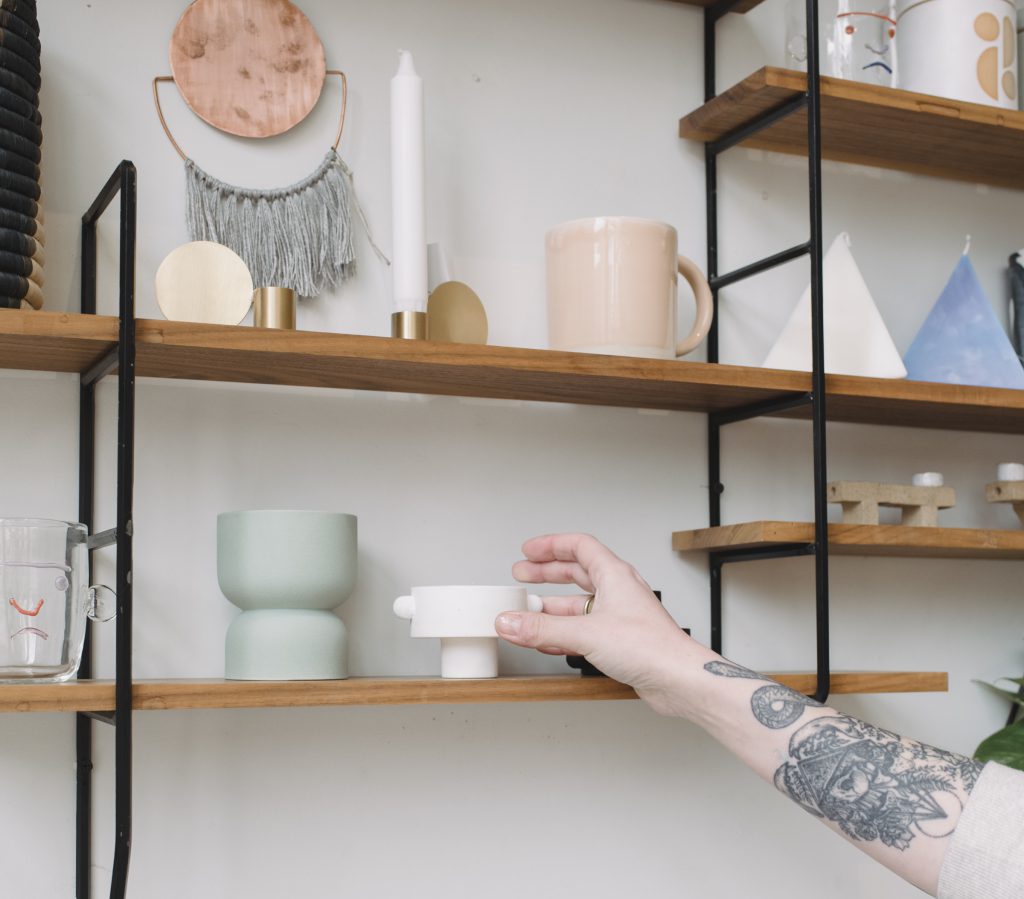
This week we’re excited to feature Claire Tibbs, the owner of Humboldt House, a Chicago-based community shop featuring locally-made goods. After calling Humboldt Park home for a few years, Claire knew that she wanted to plant roots there. She graduated from Lake Forest College with a degree in studio art and began working in contemporary art galleries. At Humboldt House, she pairs her love for art, design, and vintage finds with a community-oriented feminist focus.
For this conversation, she’s joined by Adam Marsch, a member of the Brand Success team and a founding member of Flaire, our resource group for queer employees. Adam has been with the Faire team since 2018, starting out on the Customer Experience team. Born and raised in Michigan (Go Blue!), Adam moved out West in search of warmer weather after a brief stint in Chicago, and has been happily living in San Francisco for over four years. In his free time, Adam can be found exploring the natural beauty of the city. He enjoys a nice East Coast bagel and can’t wait to get back on the Saturday night dance floor.
Adam Marsch: I used to live in Chicago, so talking to you does hit home on a personal level. It feels good to represent the community — thank you for helping me feel nostalgic. Can you tell me about Humboldt House?
Claire Tibbs: We are a feminist goods store. We opened in 2013 more as a vintage store, and then we’ve slowly evolved over the years. I have a queer artist background, so a lot of my friends are makers, and I started casually featuring their work in the store. Over time, that was the thing people were really excited about, in addition to the vintage stuff, so I started meeting more artists and this beautiful community evolved. We have this amazing diverse maker community in Chicago so it made sense for the business, and it felt good to lean into that and help them. We still keep a pretty local base, at times it’s Chicago only, but there are really cool communities in Detroit, Cleveland, and Milwaukee, so we have some makers from there as well. Our aesthetic isn’t midwest, but our community is.
What learnings have carried over to Humboldt House from your experience working for contemporary art galleries?
Galleries are a gathering space for like-minded folks to come together and feel inspired. I try to retain this ethos at Humboldt House. That no matter if you’re buying or just browsing, you leave feeling connected and inspired.
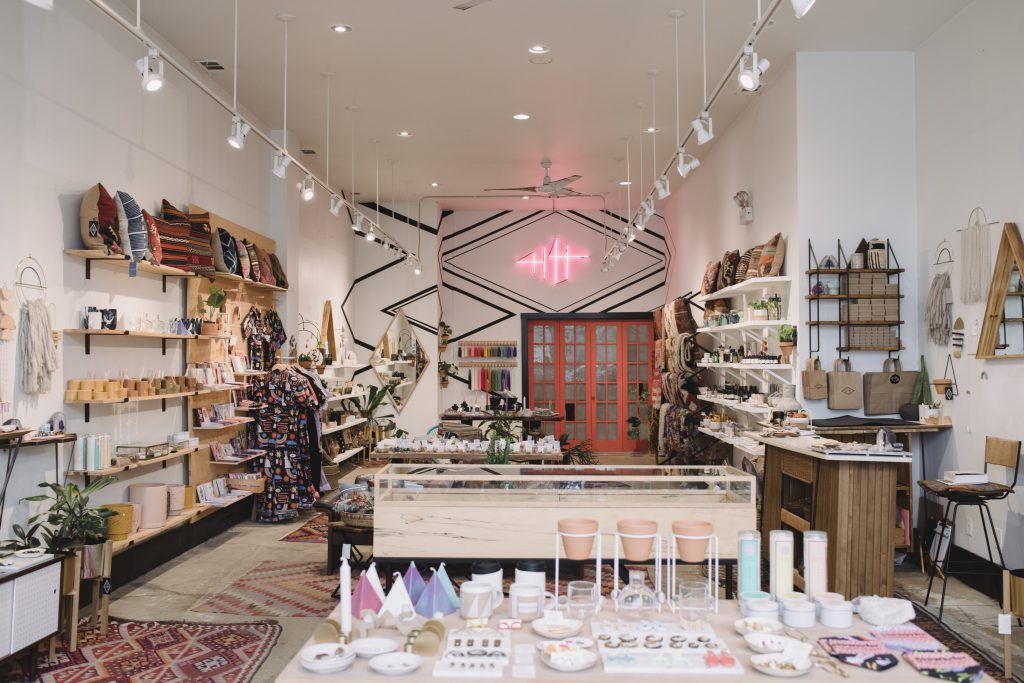
You recently opened a second shop, Peach Fuzz. What inspired you to create an inclusive kids store and what lessons learned from Humboldt House did you apply there?
The 2016 election left me feeling like I needed to be more proactive in creating a safe and inclusive space for kids. I wanted to help in a small way to make them feel seen, heard, and valued just as they are.
How have the values of the LGBTQ+ community shaped the mission of your business?
Our store has always been pretty political. In the beginning it was a bit secondary, and then 2016 highlighted how important it is. People always ask, “Are you afraid you will lose business?” and I can see that with some of our more body-positive posts, we do — but at the same time, we also gain some. I think we’ve lost people that aren’t down with the cause, but for every person we lose, we also get more that are really excited to find us. People feel good spending dollars on the future economy they want to see.
What is the most inspiring thing about the LGBTQ+ community? How has the Chicago community supported you?
For me personally, it’s my friend base and my community. It’s how I personally decompress. In the old days (before coronavirus) it was going to get drinks at a bar or having a dance party with my queer friends. One of our makers, Lea Ball, is my best friend and she also has one of the biggest fan bases here in Chicago. She makes body positive, queer work that is always evolving, and she has a very transparent lifestyle. It’s fun for people to see that a lot of the artists we carry are more than an aesthetic, they are a full lifestyle brand. That is very inherent to being queer— it’s not just a box you tick, it’s a true transformative lifestyle. As a kid maybe it horrified you or scared you, but as you get older you realize that it’s one of your favorite things about yourself. Being queer gives me a community, helps me find a purpose, and helps me organize and socialize in ways I never knew. It comes out in the ethos of my store too.
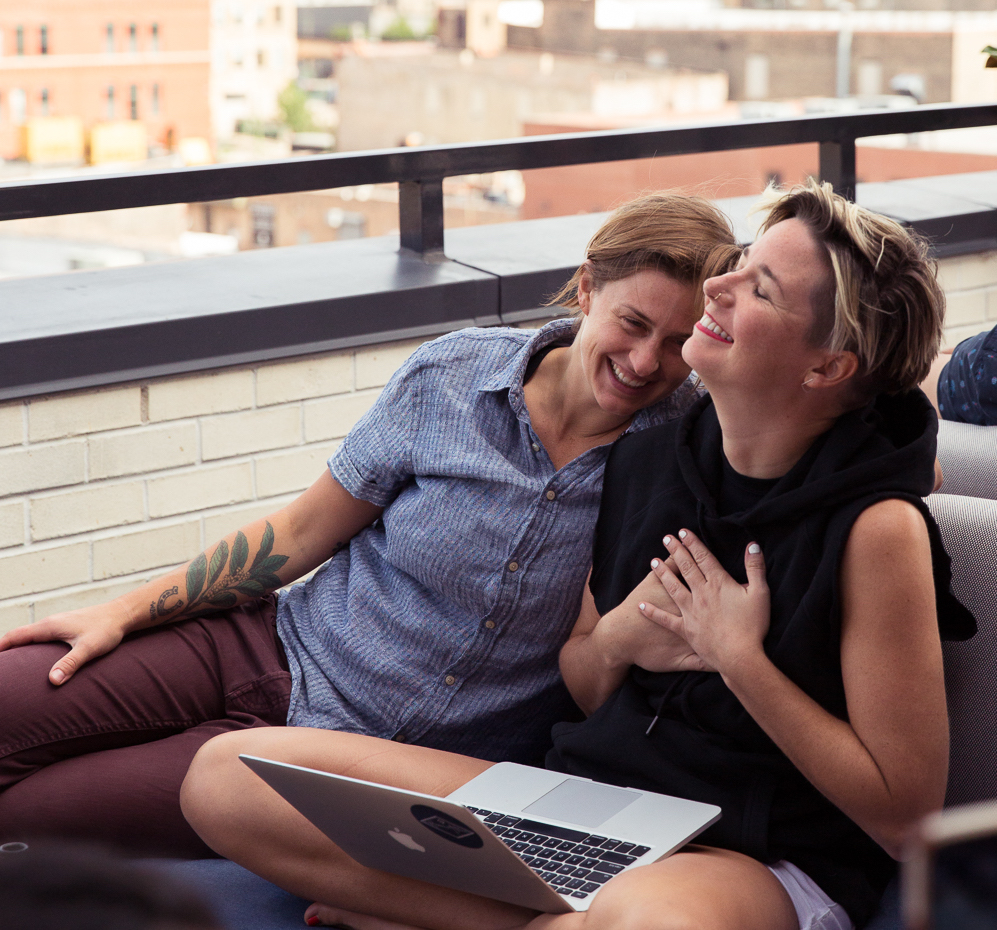
What has been your proudest accomplishment as an entrepreneur?
My businesses are very personal to me. They reflect my aesthetic, my politics, and my community. I think I’m most proud that after seven years I still love them and want to be there all the time. I love what I do and I recognize that is such a rare blessing. But it also wasn’t accidental. I make choices in merchandise and business relationships that prioritize what is in the best interest of both myself and my staff. I try and make it a happy, comforting, and supportive space for all of us to grow, learn and feel excited to come to work each day.
What advice can you give to other small business owners that may be struggling during this time?
Claire: Get a website! And get personal! Customers want to see your heart, your growth. I am so grateful that in these times, when my brand has become even more political and radical, that the community I have cultivated over the years is so on board.

